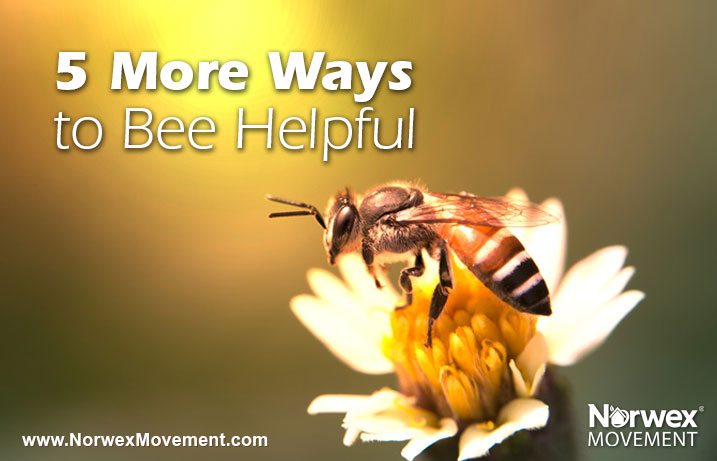

Environmentalists, bee-lovers, people who enjoy fresh produce and bees all over the world: we have reason to celebrate! The UK recently decided to back a total ban on all bee-killing pesticides across Europe.
The decision announced in November represents a turnaround from the government’s previous position that there wasn’t enough evidence to support the ban.
Now, says Environment Secretary Michael Gove, new evidence indicates that the risk to bees and other insects from neonicotinoids, a class of insecticide also known as neonics, is “greater than previously understood.”
While news of the ban in the UK is good, the problem that it relates to is not. Here’s a peek at some startling new research from the last year:
While this news is certainly attention-getting, the fact remains that we can all take action to not only help protect the bees but also to help maintain a steady supply of pollination-dependent fruits and vegetables.

On Board the Bee Highway!
Oslo, the capital city of Norway, is taking steps to create a more bee-friendly environment by building the world’s first bee highway!
Resources:
I love the tips to help our homes be more bee-friendly! I’m excited to check with my local garden stores to see which local flowers and herbs are bee attractants!
Plant more plants that bees love (Dutch Clover, Cosmos, Aster, Sunflowers, Rudbekia, Coneflower) & pull weeds to get rid of them!
I can’t wait to plant more flowers this summer with my kids! Helping out the bees seems like a great home school lesson!
How much relief I’m feeling that awareness of bee endangerment is growing. Also action is being taken to stop these dangerous pesticides being used and loved the fantastic ways we can help this amazing species to thrive. I love bees!
Thanks Lia! Long live the bees!